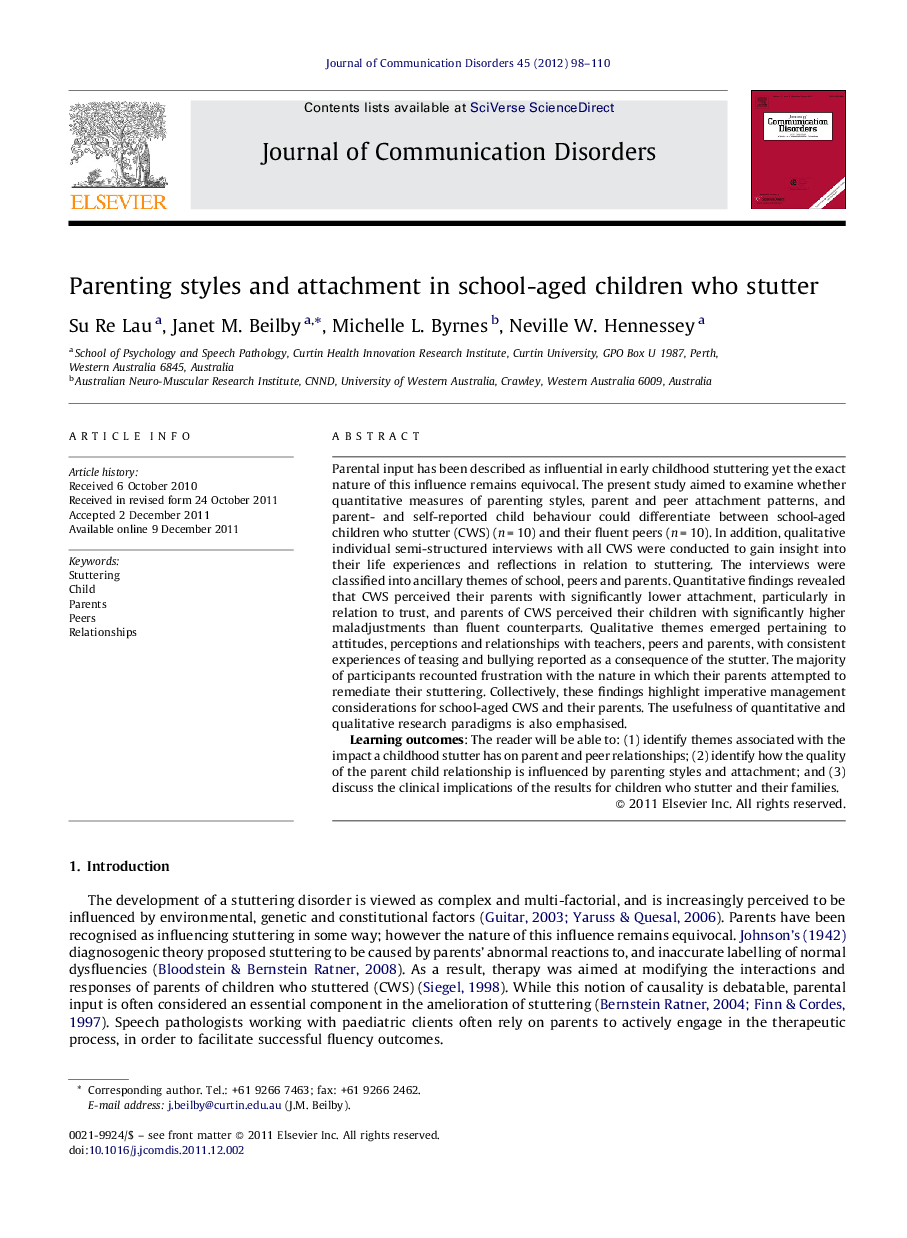| کد مقاله | کد نشریه | سال انتشار | مقاله انگلیسی | نسخه تمام متن |
|---|---|---|---|---|
| 910872 | 917659 | 2012 | 13 صفحه PDF | دانلود رایگان |

Parental input has been described as influential in early childhood stuttering yet the exact nature of this influence remains equivocal. The present study aimed to examine whether quantitative measures of parenting styles, parent and peer attachment patterns, and parent- and self-reported child behaviour could differentiate between school-aged children who stutter (CWS) (n = 10) and their fluent peers (n = 10). In addition, qualitative individual semi-structured interviews with all CWS were conducted to gain insight into their life experiences and reflections in relation to stuttering. The interviews were classified into ancillary themes of school, peers and parents. Quantitative findings revealed that CWS perceived their parents with significantly lower attachment, particularly in relation to trust, and parents of CWS perceived their children with significantly higher maladjustments than fluent counterparts. Qualitative themes emerged pertaining to attitudes, perceptions and relationships with teachers, peers and parents, with consistent experiences of teasing and bullying reported as a consequence of the stutter. The majority of participants recounted frustration with the nature in which their parents attempted to remediate their stuttering. Collectively, these findings highlight imperative management considerations for school-aged CWS and their parents. The usefulness of quantitative and qualitative research paradigms is also emphasised.Learning outcomes: The reader will be able to: (1) identify themes associated with the impact a childhood stutter has on parent and peer relationships; (2) identify how the quality of the parent child relationship is influenced by parenting styles and attachment; and (3) discuss the clinical implications of the results for children who stutter and their families.
► Children who stutter perceived parents with lower attachment than fluent peers.
► Parents perceived their children who stuttered with higher maladjustments.
► Consistent experiences of teasing and bullying as a consequence of stuttering were reported.
► Children who stuttered reported consistent frustration with parent attempts to help.
Journal: Journal of Communication Disorders - Volume 45, Issue 2, March–April 2012, Pages 98–110